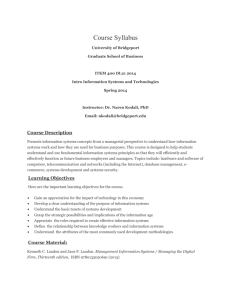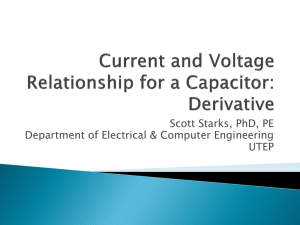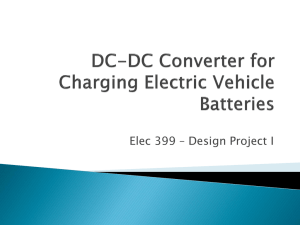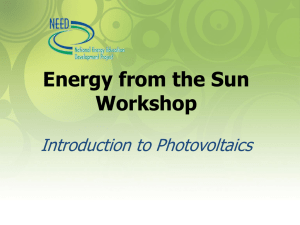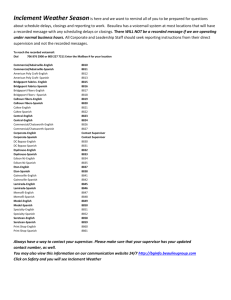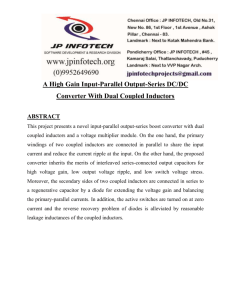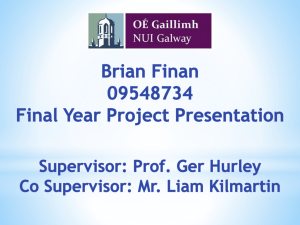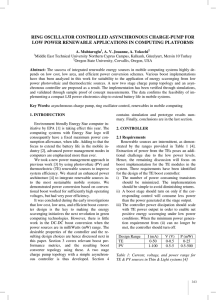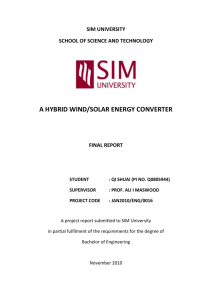Feedback Controller Design and Test of a Buck
advertisement
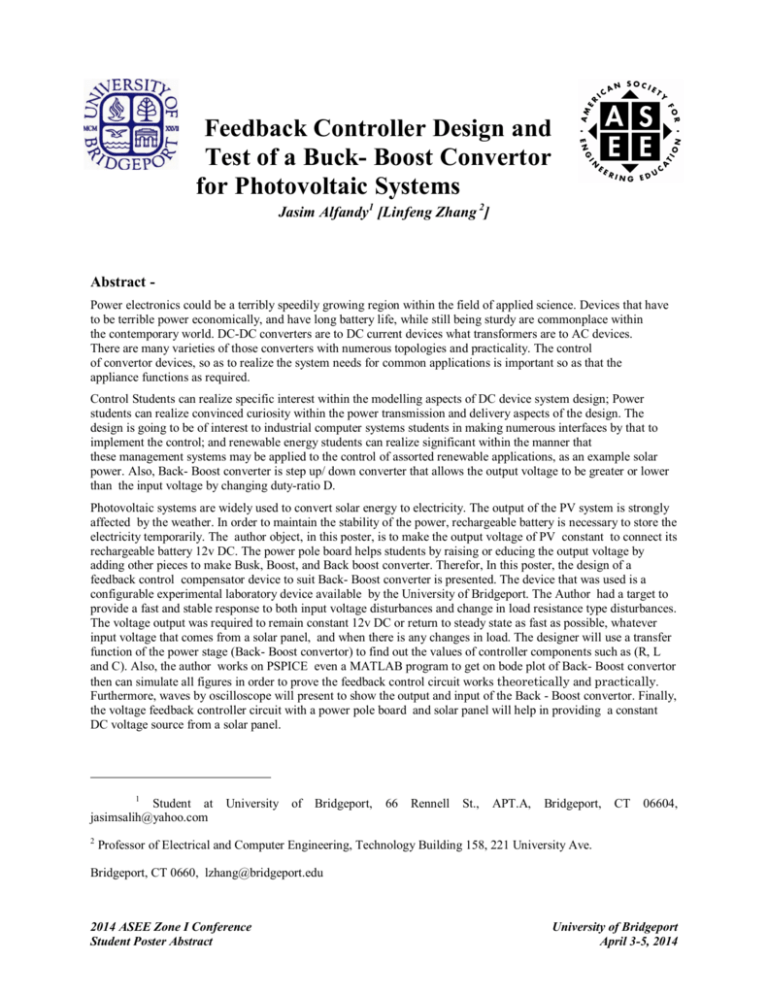
Feedback Controller Design and Test of a Buck- Boost Convertor for Photovoltaic Systems Jasim Alfandy1 [Linfeng Zhang 2] Abstract Power electronics could be a terribly speedily growing region within the field of applied science. Devices that have to be terrible power economically, and have long battery life, while still being sturdy are commonplace within the contemporary world. DC-DC converters are to DC current devices what transformers are to AC devices. There are many varieties of those converters with numerous topologies and practicality. The control of convertor devices, so as to realize the system needs for common applications is important so as that the appliance functions as required. Control Students can realize specific interest within the modelling aspects of DC device system design; Power students can realize convinced curiosity within the power transmission and delivery aspects of the design. The design is going to be of interest to industrial computer systems students in making numerous interfaces by that to implement the control; and renewable energy students can realize significant within the manner that these management systems may be applied to the control of assorted renewable applications, as an example solar power. Also, Back- Boost converter is step up/ down converter that allows the output voltage to be greater or lower than the input voltage by changing duty-ratio D. Photovoltaic systems are widely used to convert solar energy to electricity. The output of the PV system is strongly affected by the weather. In order to maintain the stability of the power, rechargeable battery is necessary to store the electricity temporarily. The author object, in this poster, is to make the output voltage of PV constant to connect its rechargeable battery 12v DC. The power pole board helps students by raising or educing the output voltage by adding other pieces to make Busk, Boost, and Back boost converter. Therefor, In this poster, the design of a feedback control compensator device to suit Back- Boost converter is presented. The device that was used is a configurable experimental laboratory device available by the University of Bridgeport. The Author had a target to provide a fast and stable response to both input voltage disturbances and change in load resistance type disturbances. The voltage output was required to remain constant 12v DC or return to steady state as fast as possible, whatever input voltage that comes from a solar panel, and when there is any changes in load. The designer will use a transfer function of the power stage (Back- Boost convertor) to find out the values of controller components such as (R, L and C). Also, the author works on PSPICE even a MATLAB program to get on bode plot of Back- Boost convertor then can simulate all figures in order to prove the feedback control circuit works theoretically and practically. Furthermore, waves by oscilloscope will present to show the output and input of the Back - Boost convertor. Finally, the voltage feedback controller circuit with a power pole board and solar panel will help in providing a constant DC voltage source from a solar panel. 1 Student at jasimsalih@yahoo.com 2 University of Bridgeport, 66 Rennell St., APT.A, Bridgeport, CT 06604, Professor of Electrical and Computer Engineering, Technology Building 158, 221 University Ave. Bridgeport, CT 0660, lzhang@bridgeport.edu 2014 ASEE Zone I Conference Student Poster Abstract University of Bridgeport April 3-5, 2014 Keywords: feedback controller, voltage mode control, Back-Boost converter, power pole board, and sustainable energy. 2014 ASEE Zone I Conference Student Poster Abstract University of Bridgeport April 3-5, 2014
